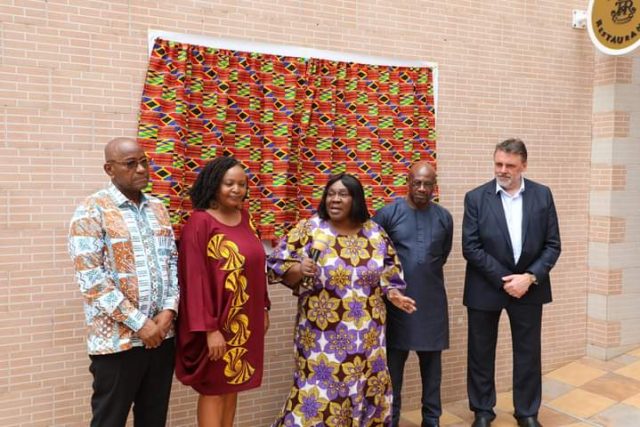By Abraham Donkor
The Executive Director of Star Ghana Foundation, Alhaji Ibrahim-Tanko Amidu has observed that mechanism where donors and partners determine how grants should be expended on projects and programmes has not served the nation well.
He argued that civil society organisations must find ways of redefining the paradigm that will rather assume that outcomes will benefit the most marginalized communities based on terms agreed upon by all parties.
Alhaji Amidu said this at the launch of a civil society strengthening programme, known as “Shifting Power in Development Practice” in Accra.
“Shifting the power in development” is an eight-year programme aimed at providing long-term support to Civil Society Actors (CSA) in Ghana, contributing to their resilience, responsiveness, and effectiveness in delivering the priorities of their constituents.

It also seeks to build institutional resilience of civil society organisations in Ghana by providing a more progressive, negotiated, participatory and widely owned solution to social development work.
It is being implemented by the Star Ghana Foundation, and West Africa Civil Society Institute with funding from Comic Relief and UK Foreign Commonwealth and Development Office.
Speaking to GBC News, the Executive Director of Star Ghana Foundation, Alhaji Ibrahim-Tanko Amidu said shifting the power means all actors in the value chain must agree on uses of grants, departing from the old practice where donors determined how granny’s should be utilized without questions.
He said, “shift the power says don’t start with telling me what you will fund to do. But then let’s sit together and decide what needs to be done and discuss what will be required. By so doing, a mutually accountable mechanism is established”.
The Executive Director of West Africa Civil Society Institute, Nana Afadzinu who touched on some components, said the new paradigm will pave the way for ownership and sustainability of projects by the constituents.
She added that it will also encourage local philanthropy which will ultimately sustain projects in the face of donor fatigue and dwindling donor inflows.

For her part, the Development Director of UK Foreign Commonwealth and Development Office, Beth Cadman indicated that the initiative is an important one which will help to promote inclusion, as well as encourage dialogue and accountability. The project is estimated to cost about 60 million Pounds.
Prior to the launch, STAR-Ghana Foundation and WACSI held a series of consultations across the country on the validation of project frameworks and tools developed for the implementation of the project.
The consultations were held on three zonal bases: southern zone, the middle belt and the northern sector. The Project Manager of the CSSP-#StP, Sarah Adjei, said the project aims to provide long-term support to civil society actors (CSAs) in Ghana.


















